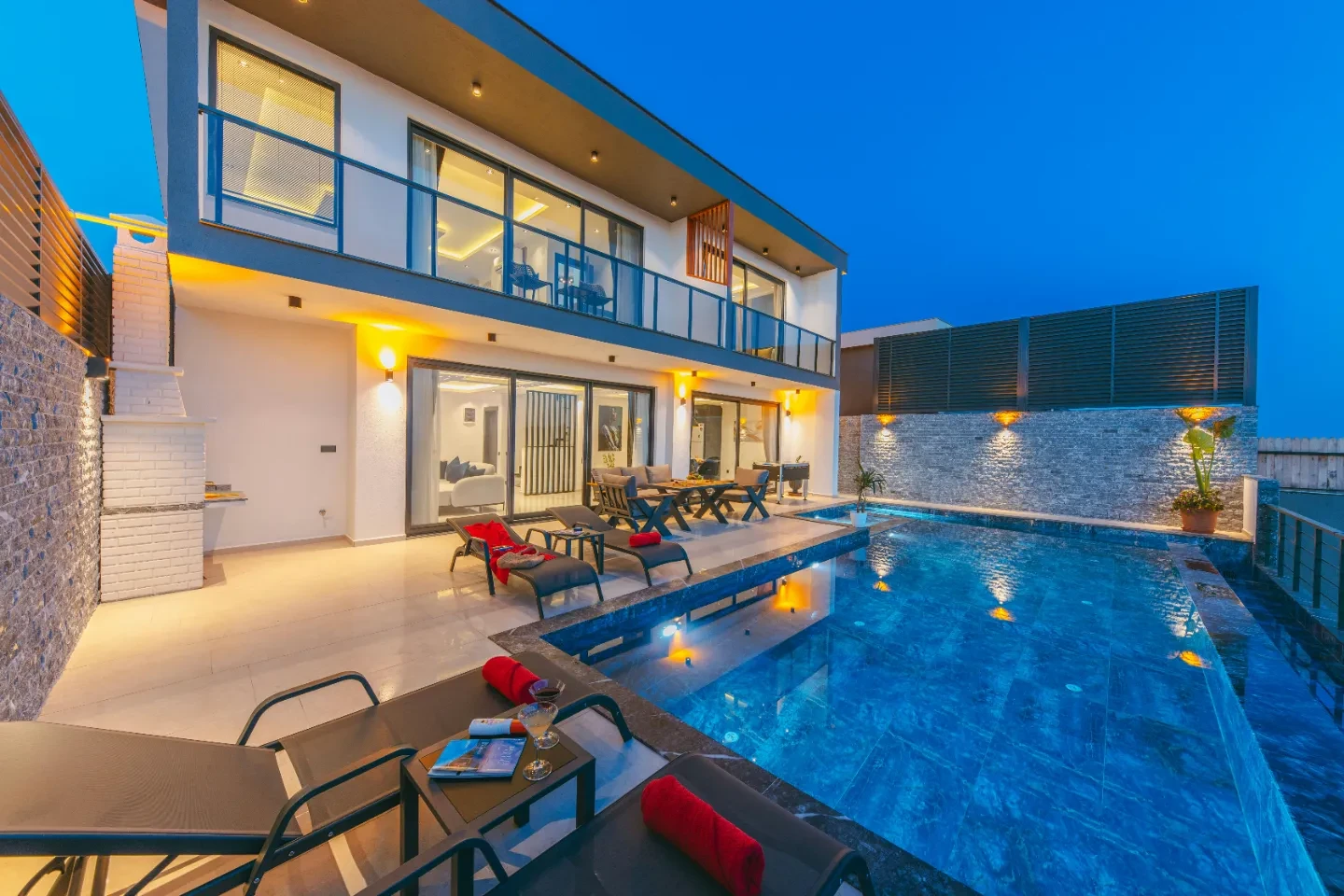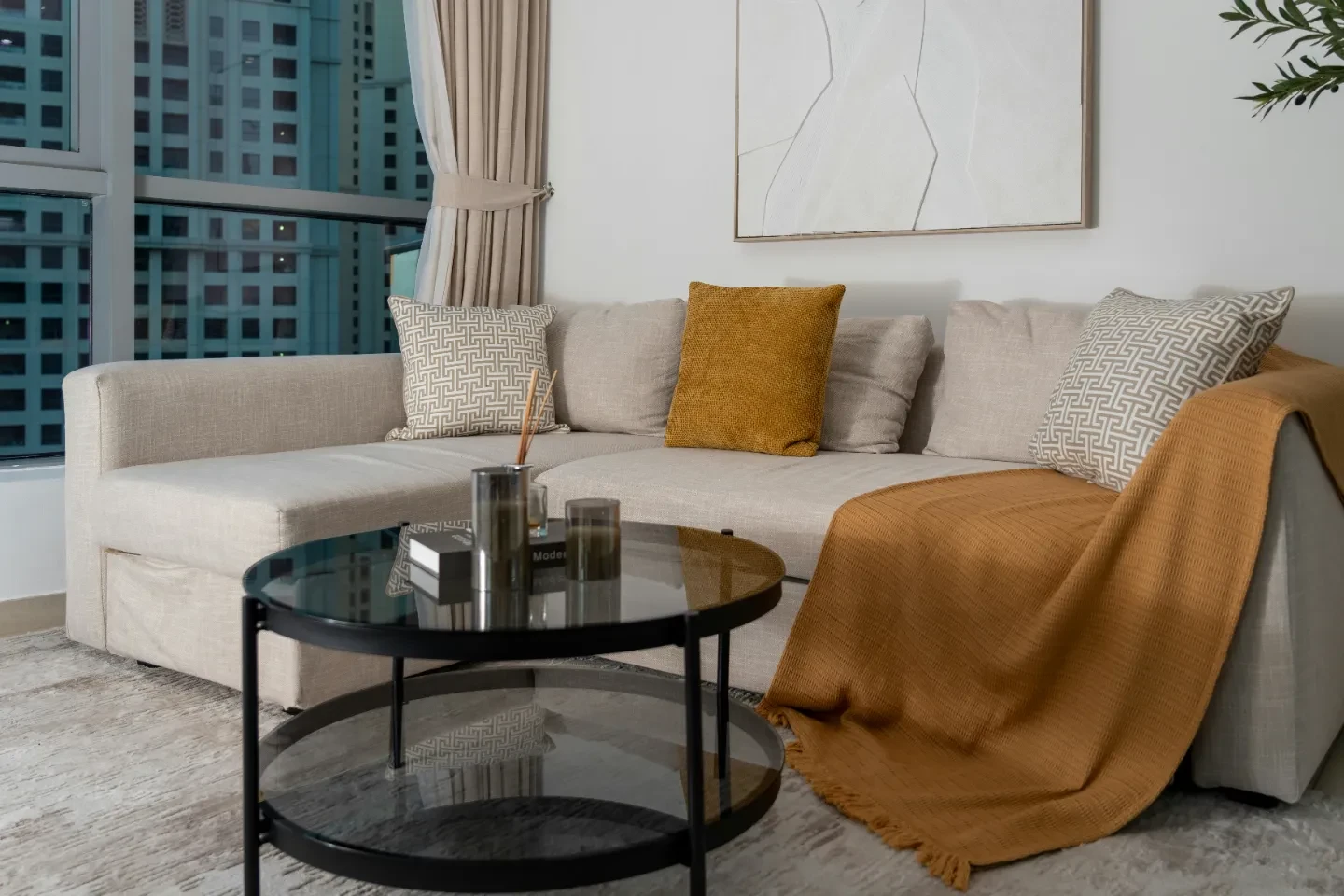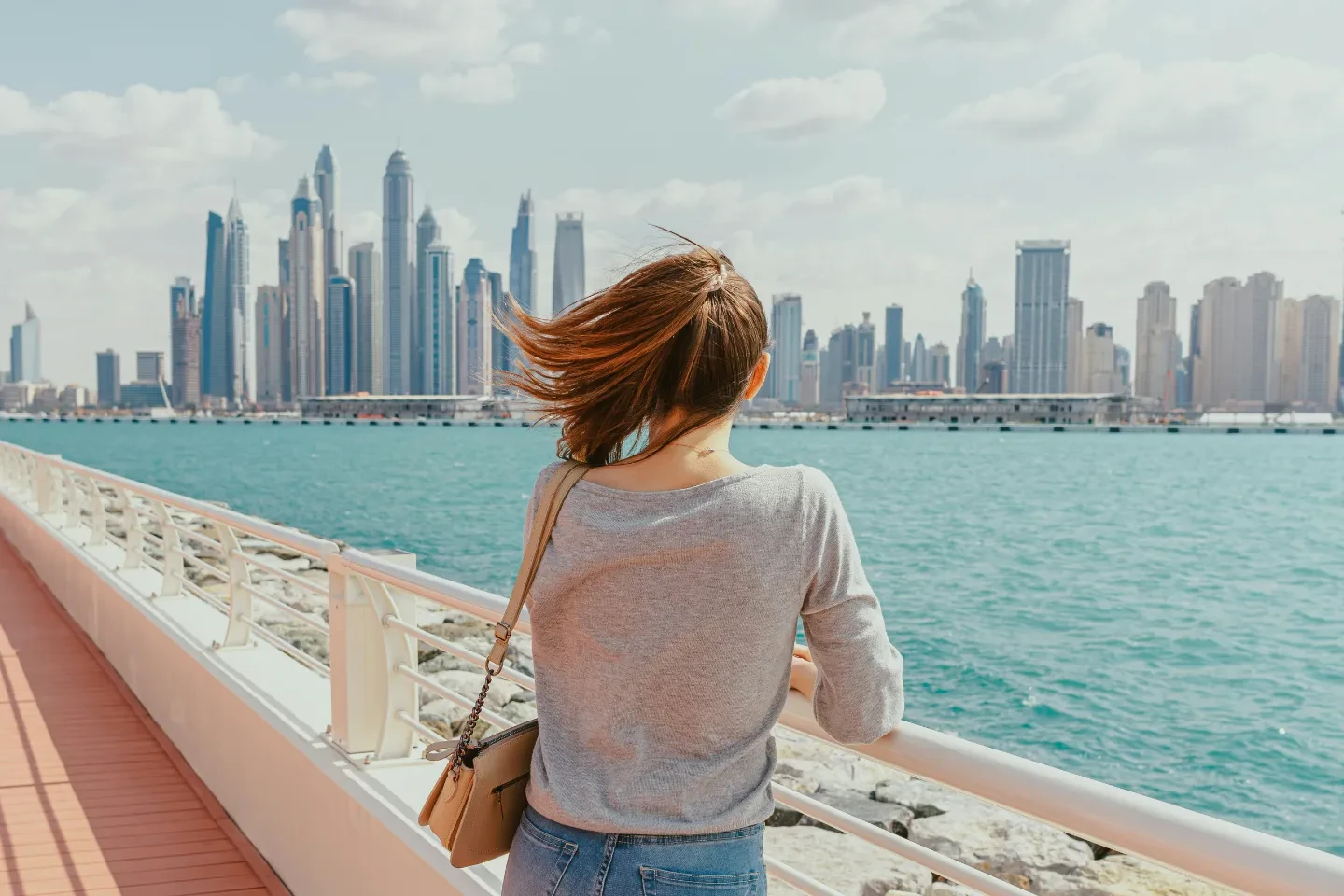
Freehold vs Leasehold Properties in Dubai: The Difference
Buying property in Dubai is an exciting opportunity, but it's important to understand the difference between freehold and leasehold ownership before making a decision. Freehold gives you full ownership and long-term control over your property, while leasehold offers a more affordable way to live or invest in Dubai for a set number of years.
In this guide, we’ll show you the key differences between freehold and leasehold properties, explain how the legal process works, and highlight the top areas to consider, so you can find the right fit for your goals and lifestyle. We’ll also cover important tips on ownership, investment, and visa options to help you choose wisely in Dubai’s growing property market.
A table showing differences between freehold and leasehold properties in Dubai
Category | Freehold | Leasehold |
|---|---|---|
Ownership | Full property & land | Property only, for set years |
Control | Full control | Limited by lease terms |
Duration | Permanent | 10–99 years |
Inheritance | Can be inherited | Subject to lease conditions |
Resale Value | Generally higher | Typically lower |
Foreign Ownership | Allowed in designated areas | Also allowed |
Visa Eligibility | Often eligible | Rarely eligible |
Cost | Higher upfront | Lower upfront |
Examples | Marina, Downtown, Palm Jumeirah | Mirdif, Deira, Al Nahda |
What is a Freehold Property in Dubai?
A freehold property means you fully own the home and the land it’s built on. In Dubai, this type of ownership is open to both local and international buyers in special areas. If you decide on purchasing a freehold property in Dubai, it’s yours to keep forever. You can live in it, rent it out, sell it, or pass it on to your children—just like owning a house in your home country. This sounds great if you want full control over your property and plan to invest in Dubai for the long term.
Key Features of Freehold Ownership
When you own a freehold property, you’re the full owner. You don’t have to worry about a time limit or needing permission to make changes (as long as you follow the city’s rules). You can decorate, rent it out, or sell it whenever you want. It’s a favorite option for people who want to invest for the long term or live in Dubai for many years.
Areas in Dubai Where Freehold is Allowed
Not all parts of Dubai are freehold, but there are many great ones that are. Some popular freehold areas include:
Dubai Marina – A modern area near the water, great for apartments.
Downtown Dubai – Where the Burj Khalifa and Dubai Mall are located.
Palm Jumeirah – A man-made island with luxury homes and hotels.
Jumeirah Village Circle (JVC), Business Bay, and Arabian Ranches – Other neighborhoods where foreigners can buy homes.
These areas have lots of choices—apartments, townhouses, villas, and more.
Legal Framework and Regulations
Dubai made a special law in 2006 to allow foreigners to own freehold properties in certain areas. The Dubai Land Department (DLD) is the government office that makes sure everything is done legally. When you buy a freehold property, the DLD gives you a title deed, which is an official paper that proves you own the home and land.
What is a Leasehold Property in Dubai?
A leasehold property means you don’t fully own the home forever—you’re renting it for a long time. In Dubai, leasehold agreements usually last between 10 to 99 years. You still have the right to live in the home, rent it out, or use it the way you want during that time. But after the lease ends, the property goes back to the original owner (called the freeholder), unless the lease is renewed.
Key Features of Leasehold Ownership
With leasehold, you get the right to use the property for many years, but you don’t own the land it’s on. You can sell your lease to someone else or rent the home to tenants, as long as your contract allows it. You may also need permission from the freeholder to make big changes or repairs. Lastly, leasehold homes usually cost less than freehold ones, so they can be a more affordable option.
Common Leasehold Areas in Dubai
Leasehold properties are found in some older or more traditional parts of Dubai. Popular leasehold areas include:
Mirdif – A family-friendly area with villas and townhouses.
Deira – One of the oldest parts of Dubai, close to the airport and markets.
Al Nahda and parts of Bur Dubai – Mixed-use areas with apartments and easy access to schools, shops, and transport.
These areas can be good choices for people who want to live in Dubai without paying high prices.
Rights and Responsibilities of the Lessee
As the lessee (that means the person who holds the lease), you have the right to live in or use the home for as long as your lease lasts. But you also have responsibilities. You might need to pay for repairs, follow the rules in your contract, and take care of the property. If you want to sell or extend your lease, you’ll usually need approval from the freeholder.
Key Differences Between Freehold vs Leasehold Properties in Dubai
 When you know how freehold vs leasehold properties are different, it can help you decide in which one to invest. Depending on your lifestyle, both options have their own pros and cons, so knowing how they compare helps you pick the one that fits your goals and budget. Here’s a breakdown based on ownership, investment, and residency benefits:
When you know how freehold vs leasehold properties are different, it can help you decide in which one to invest. Depending on your lifestyle, both options have their own pros and cons, so knowing how they compare helps you pick the one that fits your goals and budget. Here’s a breakdown based on ownership, investment, and residency benefits:
1. Ownership Rights
When you buy a freehold property in Dubai, you become the full owner of both the home and the land it stands on. This means you can live in it, rent it out, sell it, or hand it down to your family—and there’s no time limit. You also don’t pay any ground rent to a landlord, and you’ll get a title deed from the Dubai Land Department as proof of ownership.
On the other hand, with a leasehold property, you’re buying the right to live in or use the home for a set number of years—usually between 10 and 99. The land stays with the original owner, and when your lease runs out, the property goes back to them unless you renew. You might also have to pay ground rent each year, which is a small fee paid to the landlord. Understanding the differences in ownership rights is one of the biggest factors when comparing freehold vs leasehold properties in Dubai.
2. Investment Considerations
Freehold properties are often seen as better for long-term investment. They usually keep their value, especially in preferred places like Downtown Dubai or Palm Jumeirah. Since you own a freehold property forever, it will be easier to sell or rent it later.
On the other hand, leasehold properties usually cost less at the start, making them great for first-time buyers or people with a smaller budget. But over time, a leasehold property might lose value as the lease gets shorter. Some leasehold areas also aren’t as popular as freehold areas, which can make it harder to sell later.
Both freehold and leasehold properties have service charges to cover maintenance. In freehold communities, these charges are usually managed by a group of owners. In leasehold properties, the landlord or a property management company usually takes care of it.
3. Citizenship or Residency Impact
Owning property in Dubai doesn’t mean you automatically become a citizen, but it can help you get a residency visa. Namely, if you own a freehold property, you might be able to get an investor visa, depending on how much your property is worth. For example, if you buy a property worth AED 750,000 or more, you could get a 2-year visa. If you buy an even more expensive property, you might qualify for a long-term visa, like the 10-year Dubai Golden Visa.
If you own a leasehold property, you usually can’t get a visa just from that, because you don’t fully own the property forever. So if you want to live in Dubai for a long time, it’s important to think about this to help you decide between freehold and leasehold.
4. Maintenance and Repairs Responsibility
If you buy a freehold property, you are in charge of taking care of everything inside your home. This includes fixing things and making improvements when needed. For example, if your air conditioner breaks down or you want to upgrade your kitchen, you would have to pay for it yourself. As mentioned above, you also pay service charges to help maintain the building or community areas, like hallways, gyms, or pools.
With leasehold properties, many big repairs and maintenance jobs are handled by the landlord or a property manager. This can make it easier for you because you won’t have to deal with as many repair costs yourself.
5. Control and Flexibility Over the Property
Freehold owners have a lot more freedom when it comes to their homes. You can renovate, make changes, or even build extra rooms, as long as you follow Dubai’s building rules. For example, if you want to add a private swimming pool or turn a guest bedroom into a home office with major layout changes, you can usually do it without asking anyone for permission. With leasehold properties, you usually need the landlord’s permission to make any major changes. Sometimes there are limits on what you can change, like not being allowed to knock down walls or change the flooring. If you want a home that you can fully customize, freehold gives you a lot more flexibility.
6. Financing and Mortgage Options
Financing options are another key difference to consider when deciding between freehold vs leasehold ownership in Dubai. Getting a home loan (mortgage) is usually easier for freehold properties. Banks see freehold homes as a safer investment because you fully own them, so they often offer better loan deals and smaller down payments. One possible scenario is that you might only need to pay 20% upfront for a freehold property, compared to 30% or more for a leasehold.
For leasehold properties, it can be harder to get a loan, especially if there aren’t many years left on the lease. Some banks might ask for a bigger down payment or not offer a loan at all for short leases. If you plan to finance your purchase, this is something important to think about.
Freehold vs Leasehold: Which Option is Right for You?
The right choice between freehold and leasehold depends on your budget, purpose, and how long you plan to stay in Dubai. Freehold is better for long-term ownership and flexibility, while leasehold may suit short-term needs or lower budgets. Here’s how each option works best for different types of buyers:
For Investors
Freehold properties are often the preferred choice for investors. They offer full ownership, strong long-term value, and higher rental income potential—especially in top areas like Dubai Marina or Downtown. You can sell, lease, or transfer the property without restrictions, making it easier to manage your investment. While the upfront cost is higher, freehold assets tend to hold or grow in value over time.
Leasehold properties can also work for investors looking for a lower entry point. They’re often cheaper to buy and can still generate rental returns. However, leasehold values may decrease as the lease shortens, and resale can be more limited compared to freehold.
For End Users
If you plan to live in the property, freehold gives you full control and long-term security. You can live in it for as long as you like and make any changes or improvements to the home to suit your needs. It's a strong option for expats planning to settle in Dubai or for those who want a more permanent base.
Leasehold properties can be a good fit if you’re staying short- to mid-term, or if you're looking for a more budget-friendly option. You’ll still have the right to use and enjoy the home, but for a limited time. These properties often come with managed maintenance, which can make day-to-day living easier.
Legal Process and Documentation
 Buying a property in Dubai—whether it’s freehold or leasehold—means following a few important legal steps. Freehold properties let you fully own the home and the land it’s built on. Leasehold properties allow you to use the home for a set number of years (usually between 30 and 99), but the land still belongs to the original owner.
Buying a property in Dubai—whether it’s freehold or leasehold—means following a few important legal steps. Freehold properties let you fully own the home and the land it’s built on. Leasehold properties allow you to use the home for a set number of years (usually between 30 and 99), but the land still belongs to the original owner.
All property deals must be registered with the Dubai Land Department (DLD). To make sure everything goes smoothly, it’s best to work with a licensed real estate agent or legal advisor. They’ll help you check that the property is in the right area for freehold or leasehold buyers and make sure all contracts are clear and correct.
Steps to Buying a Freehold or Leasehold Property
A table with the key steps in a property purchase
Stage | Action |
|---|---|
1. Property Selection | Choose the property and agree on the purchase price. |
2. Initial Agreement | Sign the Memorandum of Understanding (MoU) and pay the deposit. |
3. Developer Clearance | Obtain a No Objection Certificate (NOC) from the developer. |
4. Ownership Transfer | Finalize the deal at the Dubai Land Department and pay any fees. |
5. Registration | Receive the title deed and complete the registration process. |
The buying process starts with choosing a property and agreeing on a price with the seller. Once you’re both happy with the deal, you’ll sign a simple agreement called a Memorandum of Understanding (MoU) and pay a deposit to secure the home.
After that, the developer gives you a No Objection Certificate (NOC) to confirm there are no unpaid fees or issues with the property. When everything is ready, you and the seller will visit the Dubai Land Department to complete the sale. Fees are paid, and the property is officially transferred to your name.
For leasehold properties, the steps are similar, but the contract will also explain how long you can use the property and any rules about renewing the lease.
Key Documents Required for Property Registration
When registering a property in Dubai, you’ll need to prepare several important documents. Here’s a simple breakdown:
Basic Documents (for all buyers):
A copy of your passport
Emirates ID (for residents)
Signed Memorandum of Understanding (MoU)
No Objection Certificate (NOC) from the developer
Payment receipts for deposits and registration fees
Additional Documents (depending on the property type):
For Resale Properties: The existing Title Deed from the previous owner
For Mortgaged Properties: Bank documents showing your mortgage details
For Leasehold Properties: The Lease Agreement showing the lease period
Once all the documents are submitted and verified by the Dubai Land Department (DLD), you’ll receive a new Title Deed. This document officially makes you the owner or leaseholder of the property.
Top Locations for Freehold and Leasehold Properties in Dubai
 Now that you know the difference between freehold vs leasehold properties, it's also important to know where you can find them. Some Dubai areas are known for offering full ownership and strong investment potential, while others are popular for more affordable, long-term living options. Here’s a closer look at some of the top locations for each.
Now that you know the difference between freehold vs leasehold properties, it's also important to know where you can find them. Some Dubai areas are known for offering full ownership and strong investment potential, while others are popular for more affordable, long-term living options. Here’s a closer look at some of the top locations for each.
Freehold Locations: Dubai Marina, Downtown Dubai, and Palm Jumeirah
Dubai is home to several prime freehold areas that offer full ownership and strong investment potential. These neighborhoods are known for their luxury properties, excellent amenities, and high demand among both local and international buyers. Kredium offers a wide range of properties for sale and rent across these areas, making it easy to find a home that matches your needs. Here’s a closer look at some of the most popular freehold locations in the city:
Dubai Marina
Dubai Marina is perfect for those who enjoy a lively, modern lifestyle. It offers stunning waterfront views, luxury apartments, and a buzzing atmosphere with plenty of restaurants, shops, and entertainment options. For instance, the Rove Home Dubai Marina by IRTH Development offers 679 ready-to-move-in units, including studios, 1- and 2-bedroom apartments, and sky lofts, all made for easy, modern living.
The Marina's well-planned layout, pedestrian-friendly walkways, and proximity to business hubs like Dubai Media City make it a top choice for both residents and investors looking for long-term value.
Downtown Dubai
Downtown Dubai is the beating heart of the city. Known for landmarks like the Burj Khalifa, Dubai Mall, and Dubai Opera, it’s an area where everything feels world-class. Properties here are in high demand because of the unmatched location, excellent infrastructure, and investment potential. Living in Downtown means being at the center of major events, fine dining, and endless shopping experiences, making it a dream spot for many buyers.
For example, the Elegance Tower is a 26-storey building in Downtown Dubai, co-designed with fashion icon Zuhair Murad. It offers stylish 1- and 2-bedroom apartments with high-end finishes and elegant design touches.
Palm Jumeirah
Palm Jumeirah offers a unique and luxurious living experience with its iconic palm-shaped design. It is home to some of Dubai’s most exclusive villas, beachfront apartments, and high-end resorts. For example, Palm Beach Towers is a new three-tower complex with homes, shops, and a beach club. It is located at the entrance of Palm Jumeirah and offers a collection of premium residences in Dubai.
Residents enjoy private beaches, luxury amenities, and breathtaking views of the Arabian Gulf. Whether you're looking for a peaceful retreat or a high-profile investment, Palm Jumeirah stands out as one of the most prestigious freehold addresses in the city.
Leasehold Locations: Mirdif, Deira, and Al Nahda
Dubai’s leasehold areas provide great options for buyers who want affordable housing without compromising on convenience or community feel. These neighborhoods are well-established, offer easy access to schools, shopping centers, and workplaces, and are ideal for families, young professionals, and long-term residents. Here’s a closer look at some of the most popular leasehold areas:
Mirdif
Mirdif is known for its quiet, suburban atmosphere and family-friendly environment. It features a mix of villas and low-rise apartments at more affordable prices compared to central Dubai areas. Mirdif is popular among families because of its parks, schools, and community centers, providing a peaceful yet well-connected place to live. It's a great option for those seeking more space and a slower pace of life without being too far from the city center.
Deira
Deira is one of Dubai’s oldest and most historic neighborhoods, offering a vibrant, authentic atmosphere. It's famous for traditional souks, busy markets, and a wide variety of local businesses. Property prices in Deira are generally lower, making it attractive for buyers looking for affordable urban living. Its location near Dubai International Airport and access to public transport make it a practical choice for residents who value convenience and culture.
Al Nahda
Al Nahda is located near the border with Sharjah, offering residents easy access to both emirates. It’s a popular area for professionals and small families thanks to its affordability and convenience. Al Nahda has a good selection of schools, healthcare facilities, and shopping malls, making it a practical choice for everyday living. Its growing popularity means there are plenty of rental and purchase opportunities for those on a modest budget.
FAQs
Still wondering about freehold vs leasehold properties in Dubai? These quick FAQs will clear up common doubts and help you make the right decision.
1. Do leasehold properties increase in value?
Yes, leasehold properties in Dubai can increase in value, especially in desirable locations with long lease terms remaining. However, their appreciation potential is generally lower than freehold properties due to ownership limitations and the decreasing lease duration over time.
2. Is Dubai South considered a freehold or leasehold area?
Dubai South is primarily a freehold area, offering full ownership to buyers in most zones. However, commercial properties in the region are typically available on a leasehold basis.
3. Can foreigners own 100% of a property in Dubai?
Yes, foreigners can own 100% of a property in Dubai, but only in designated freehold areas. These zones allow full ownership without the need for a local sponsor or partner. Popular freehold areas include Dubai Marina, Downtown Dubai, Palm Jumeirah, and Business Bay, among others.
Conclusion
Choosing between freehold vs leasehold properties depends on whether you’re aiming for full ownership with long-term benefits or prefer a lower-cost, flexible living option. Understanding these differences is key to making a confident and rewarding investment in Dubai’s exciting real estate market.
If you're ready to take the next step, Kredium’s real estate experts can help you find the perfect home or investment. Discover properties for sale and rent across Dubai — visit our listings page and find your next home or investment today!
Photo Credits: Pexels
